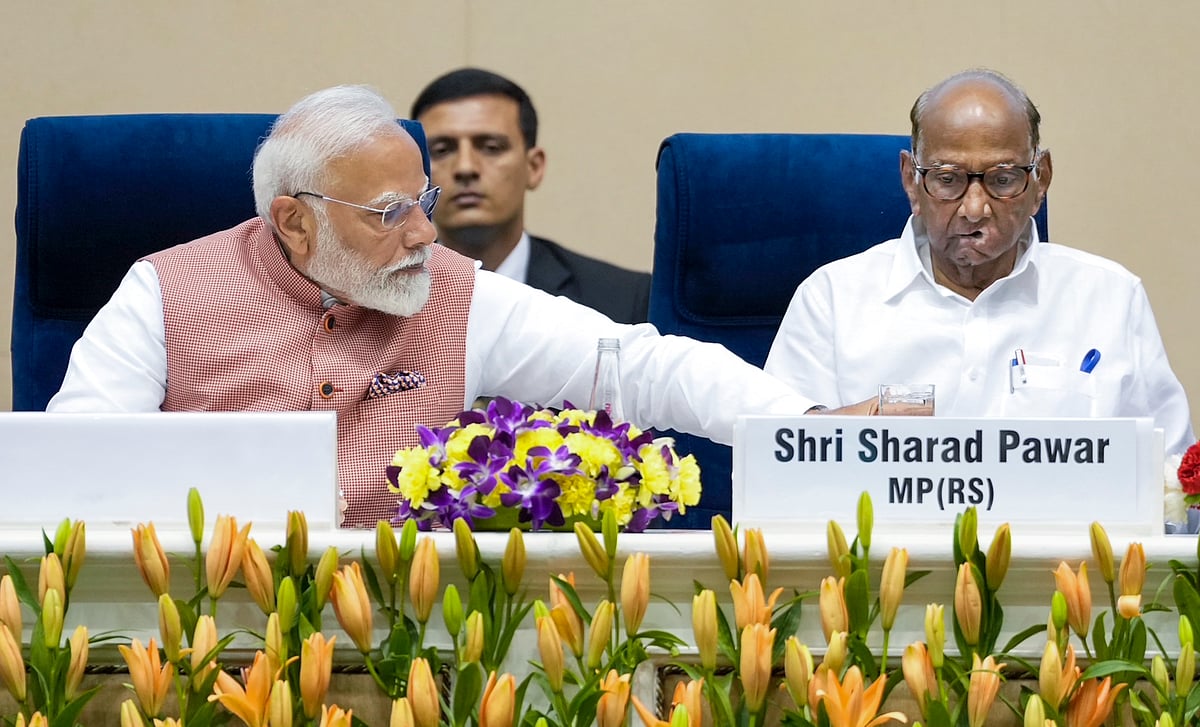 |
|
Prime Minister Narendra Modi's attendance at the 98th Akhil Bharatiya Marathi Sahitya Sammelan was marked by both political maneuvering and a show of cultural appreciation. His speech, while ostensibly focused on the celebration of Marathi language and culture, subtly addressed broader national themes, weaving together elements of linguistic unity, historical pride, and the role of organizations like the Rashtriya Swayamsevak Sangh (RSS) in shaping India's cultural landscape. The event provided a platform for Modi to reinforce his image as a unifying figure, capable of transcending regional and political divides, while simultaneously promoting a particular vision of Indian nationalism.
A significant aspect of Modi's participation was his visible display of respect towards Sharad Pawar, a prominent opposition leader and chairman of the Sammelan's reception committee. The gesture of inviting Pawar to jointly light the ceremonial lamp, followed by the Prime Minister's assistance in helping the elderly leader to his seat and offering him water, served as a powerful visual narrative. This act of courtesy, witnessed by a large audience, transcended the usual political rhetoric and projected an image of Modi as someone willing to engage with political opponents on a level beyond partisan conflict. The applause it received underscored the public's appreciation for such gestures, especially in the context of India's often-fractious political climate. While the intention behind this gesture remains open to interpretation, it certainly created a positive image for the Prime Minister, projecting an image of respect for elders and political opponents, regardless of ideological differences.
Modi's speech itself was a carefully constructed blend of praise for the Marathi language and culture, a subtle rebuke of linguistic division, and a staunch defense of the RSS. He eloquently described Marathi as 'sweeter than nectar,' emphasizing his deep affection for the language and its rich cultural heritage. This resonated particularly well with the audience, creating a palpable sense of shared identity and pride. He cleverly linked the Sammelan to significant historical milestones, including the coronation of Chhatrapati Shivaji Maharaj, the birth anniversary of Ahilyabai Holkar, and the 75th anniversary of the Indian Constitution, highlighting the event’s placement within a broader narrative of national identity and historical continuity. This strategic framing connected the celebration of Marathi culture to a larger national discourse, emphasizing the unity and continuity of Indian heritage.
The Prime Minister’s acknowledgment of the RSS's centenary year was particularly noteworthy. While emphasizing the organization's role in preserving Indian culture and values, he subtly linked his own political journey and ideological formation to the RSS. This was a calculated move to associate his political ideology with a well-established and influential organization, thereby reinforcing his narrative of national pride and cultural preservation. By framing the RSS as a guardian of India’s cultural legacy, stretching from the Vedas to Vivekananda, Modi sought to further legitimize the organization and indirectly bolster his own political standing within the framework of a larger national narrative. The mention of his personal connection to the RSS, highlighting the organization's influence on his life and his affinity for Marathi language and tradition, further solidified this connection for the audience.
The announcement regarding Marathi’s recent elevation to classical language status served as a powerful concluding note. Modi emphasized his personal pride and satisfaction in achieving this milestone, presenting himself as a champion for the interests of Marathi speakers, both within India and globally. This act of granting classical language status not only catered to the Marathi-speaking population but also reinforced the message of linguistic diversity and inclusivity, an apparent counterpoint to his earlier implicit criticism of those who try to divide people along linguistic lines. Overall, Modi's participation in the Sammelan was a carefully orchestrated event, demonstrating political skill and cultural sensitivity, aiming to project a particular image of national unity, cultural pride, and the significant role of certain institutions in preserving India's heritage.
Source: 'Sweeter than nectar': Modi launches Marathi conference, makes special gesture to Sharad Pawar
